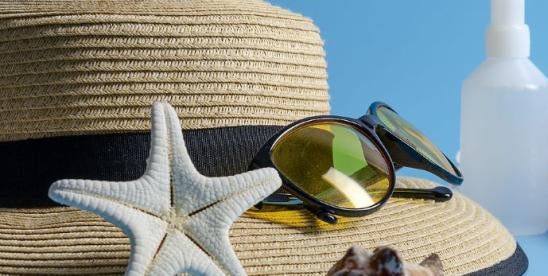As summer approaches, many foreign employees will travel abroad for vacations, to visit family, and possibly to renew their visas while outside the country.
Although we continue to see an overall increase in visa appointments, a welcome improvement after delays and lack of availability over the past two years, there are still many areas where delays exist. Backlogs could be due to a shortage of consular staff managing the post, specific types of visas that are prioritized, or a location's inability to support the number of visa applications it receives.
Here are three tips for best managing variables and ensuring foreign nationals have the best chance of success with their summer travel plans.
Summer Travel Tip #1: Check Early, Check Often
The first and most important tip for me is to encourage candidates to check:
- The validity/expiration date of their passport,
- The validity of their current visa and
- The validity of the underlying status they wish to renew with their visa application.
It is difficult to catch up on the status of an applicant if they are between two periods. Many people forget that the visa has an expiration date, but their underlying status also has an expiration date, and it is important that both are valid. I have had many clients who were planning a summer trip but were only able to get a very limited amount of time because their underlying status had not been extended.
To get the most out of their immigration status, foreign nationals should ensure they have the proper documentation to extend it. Think about it not just about getting a visa, but how it extends their overall immigration status in the United States.
Summer Travel Tip #2: Make an Appointment Before You Travel
I always recommend that candidates make an appointment first and then put their travel plans on the calendar. It's disappointing for an applicant when they have travel plans booked and I can't get them a date in this limited time frame, especially when consulates and embassies receive hundreds or even thousands of people every day .
However, if we initiate the process in a timely manner, we will be able to discuss potential travel dates before they are set and our team will be able to identify where a consulate could accommodate the desired travel dates. Or if they are flexible and can shift the trip by a week or two, they can secure an appointment with their preferred consulates thanks to greater availability.
It is also important to note that overall processing may take longer in the summer, especially for those traveling to Europe – particularly Paris – with the Olympic and Paralympic Games. Services will be very limited this summer in Paris, and in-person appointments may not even be available at all, except in cases of life or death emergencies. We also note that the ability to file applications with third-country nationals across Europe continues to be limited for foreign nationals who do not reside there.
Considering all the potential obstacles, I can't stress this enough: let's put the appointment on the calendar, then plan your trip.
Summer Travel Tip #3: Don't Bank on the Interview Waiver
I won't have many fans on this one, but my third tip is to not just assume that an interview waiver will be the quickest option. The State Department emphasizes that the interview waiver process is a benefit, and I think it's a benefit for many people, but it won't necessarily result in a faster approval time.
We normally see the consulate return the visa within five to seven business days after an interview, whereas interview waivers can take up to ten to fifteen business days. This is largely due to the immediacy of the interview: the consulate has the foreigner's passport in hand and will complete the process instantly. On the other hand, although it is convenient to mail the interview waiver request, it is also unclear when the consulate will collect it, adjudicate it and return it.
It really depends on individual circumstances. If the foreign national plans to stay in the country for several weeks and can qualify for an interview waiver, this is an excellent option. Otherwise, I would recommend continuing with the interview.
Bonus Tip for Summer Travel: Know Why You Want to Expedite
A question I've heard many times is: “What if I can't get a visa interview?” » In this case, it is possible to use what is commonly called an expedited request. How you approach these applications is completely unique to each consulate, but it generally involves the applicant asking the U.S. consulate to give them priority over other visa applicants due to extenuating circumstances.
These extenuating circumstances – the “why” behind the request – are crucial. You must be able to explain why your case is so important that it needs to be addressed now. When I am able to contact the consulate with a solid answer to this question, it gives us a chance to have the application accepted.
I recommend that anyone in this emergency situation first check the appointment schedule and choose the first available option, then submit the request. From there, we can finalize the “why” and work with the consulate to identify a gap in their schedule.
A nice journey to all of you.


